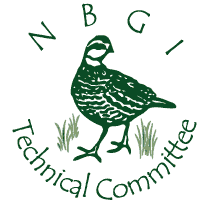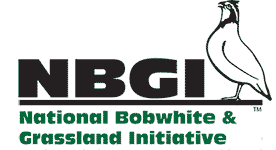With demand growing for wild bobwhite quail in states pursuing population restoration and the subsequent pressure on states that have quail to provide them, the National Bobwhite Conservation Initiative (NBCI) has adopted an official position — and voluntary guidelines — for interstate translocation of the birds. Purpose of the guidelines is to maximize the potential for success, protect the existing public resources, ensure public accountability and promote scientific learning. Both the steering committee of the National Bobwhite Technical Committee as well as the NBCI Management Board, comprised of senior-level officials of the 25 state wildlife agencies that are members, have approved the document, which will be reviewed in three years.
“Translocating wild bobwhites is unlike moving deer and wild turkeys, which have been restored throughout most of their ranges,” said NBCI Director Don McKenzie. “The difference is that habitat and compatible land uses for deer and turkeys were already in place, so animals just had to be captured, moved and released. That’s not the case for bobwhites. Lack of habitat and incompatible land uses are at the root of the population decline.
“We believe translocation can be part of the answer for certain locations where bobwhites have disappeared, but it should be in concert with appropriate habitat development and maintenance commitment at a sufficient scale, as well as a number of other key considerations,” McKenzie said.
At least one state, Pennsylvania, is already using the document.
“With a few exceptions, historical interstate bobwhite quail translocations range-wide have not shared a strong record of success,” said Tom Keller, wildlife research biologist and “quail coordinator” for the Pennsylvania Game Commission. “Good intentions and politics were primary drivers behind these past efforts, and although important, lacked the science and consideration of suitable habitat availability. The translocation guidelines developed by NBCI are crucial at a point in time when bobwhite quail are losing ground on the fringes of their range. Here in Pennsylvania we’re working to restore this native species to its northeastern range and this document acts as a support tool to ensure the best opportunity for success by elevating the importance of suitable habitat establishment and creating accountability on the part of both the recipient and source. Pennsylvania fully supports these guidelines moving forward.”
To see the specific policy guidelines in the eight-page document, please visit https://nbgi.org/download/bobwhite-translocation-guidelines/
About NBCI
Headquartered at the University of Tennessee’s Institute of Agriculture/Department of Forestry, Wildlife and Fisheries, NBCI is a science and habitat-based initiative of the National Bobwhite Technical Committee (NBTC) to elevate bobwhite quail recovery from an individual state-by-state proposition to a coordinated, range-wide leadership endeavor to restore wild bobwhites on a landscape scale. The committee is comprised of representatives of 25 state wildlife agencies, various academic research institutions and private conservation organizations. Support for NBCI is provided by the Federal Aid in Wildlife Restoration Program, state wildlife agencies, the Joe Crafton Family Endowment for Quail Initiatives, the University of Tennessee, Quail & Upland Game Alliance, Park Cities Quail and Roundstone Native Seed.

